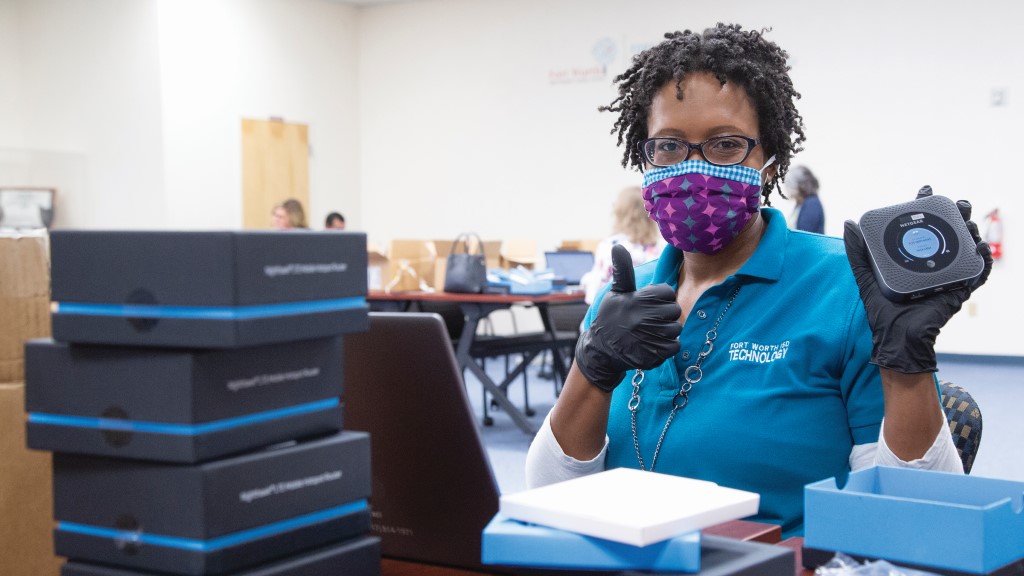We are in the midst of a national crisis—one that has disproportionately affected communities of color and the most vulnerable among us. The coronavirus not only threatens our health and our economy, but also casts a shadow on the educational prospects of our at-risk children.
From the earliest days of the COVID-19 shutdown, our staff and trustees moved quickly to meet the most basic needs of our constituents.
We knew that, for many of our students, the most nutritious meals they received were at school. Like almost every school district, we set up multiple “Meals to Go” locations. As of this writing, we have distributed more than a quarter of a million breakfasts and lunches.
We also partnered with the Tarrant (County) Area Food Bank to give away thousands of boxes of nonperishable groceries to our families. The lines are long and growing, and we are working with local philanthropies to raise more money to buy these much-needed supplies.
We coordinated efforts with volunteer groups and our staff to distribute brand-new, high-interest, and culturally relevant books, especially for younger children.
All this important work has required swift and nonstop strategizing, communicating, and mobilizing. But even this has been relatively easy compared to the challenge that came next: finding a way to continue the equitable process of educating our students.
The mission of Fort Worth ISD—what we stand for—is “preparing all children for success in college, career, and community leadership.”
And now, while we are still trying to understand how best to protect our community, Fort Worth ISD also is working urgently to see that our students and their families have internet access, which is as basic a necessity in the 21st century as electricity and water services.
In the words of our Superintendent Kent P. Scribner, the equitable delivery of high-quality online instruction to our 84,000 students was and is a massive undertaking.

Karla Lester, director of Fort Worth ISD instructional technology, configuring a Wi-Fi hot spot to be delivered to a student.
Our teaching and learning division has put curricula on our district website as well as lesson plans for students and a guide for their parents. School leadership continually gives teachers instructions and support. Our teachers have been amazing—setting up virtual classrooms and communicating directly with students and their families.
But making that online connection was not possible for some students.
You might say COVID-19 revealed more clearly than ever the opportunity gap that exists in this country and in our own communities.
The first step in addressing this inequity was to survey families. We asked about the availability of devices in the home, as well as access to the internet. We then compiled a list of those in need of a computer, Wi-Fi hot spot, or both.
While our high school and middle school students had devices through our one-to-one program, our elementary children did not.
On April 14, during an online board meeting, our trustees approved the emergency purchase of thousands of Chromebook computers and internet hot spots. We spent nearly $1.2 million on Chromebooks and $1.3 million on hot spots and a 3GB mobile plan for each family.
Since then, several companies and community organizations have pledged to help the district defer the cost of these needed items.
This health crisis will pass. However, we each have an opportunity to learn from this moment in history and level the education playing field. It’s doubtful we will ever return to “the way it was,” but we can work to ensure that now, and in the future, education is accessible for all children.
Jacinto Ramos Jr. is the 2020-21 chair of the CUBE Steering Committee and president of Texas’ Fort Worth Independent School Board. Barbara Griffith is chief of communications of Fort Worth ISD.

Share this content